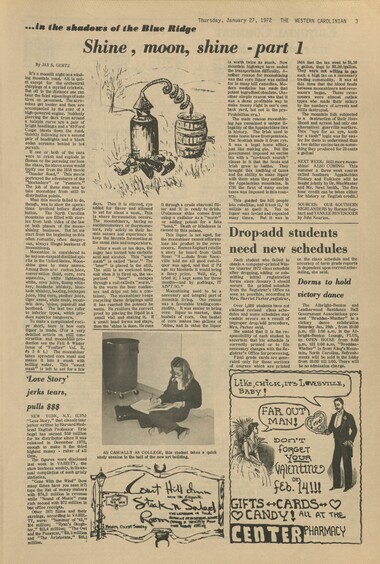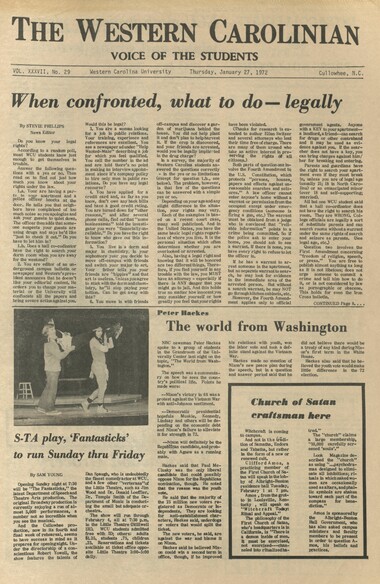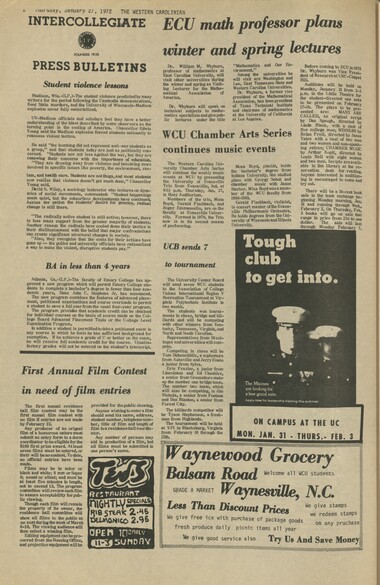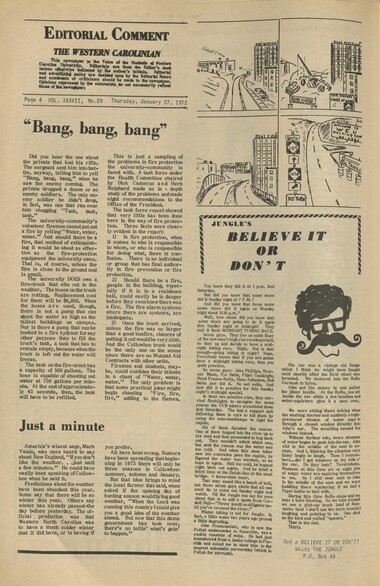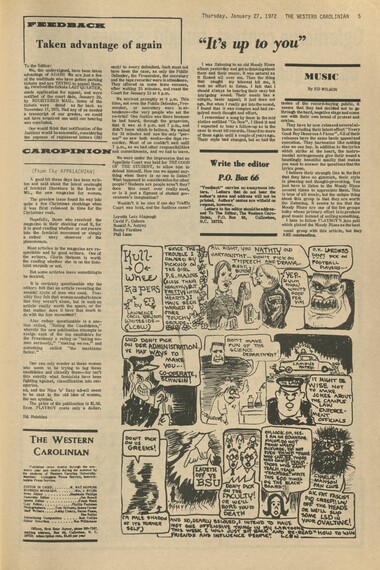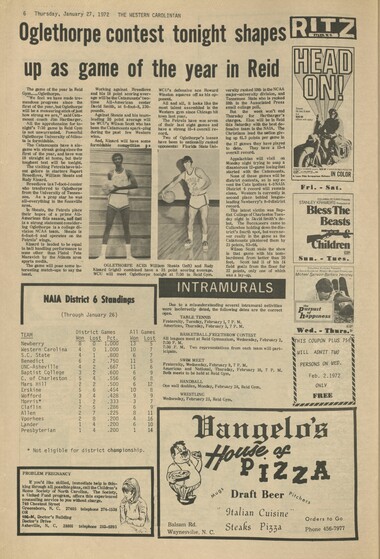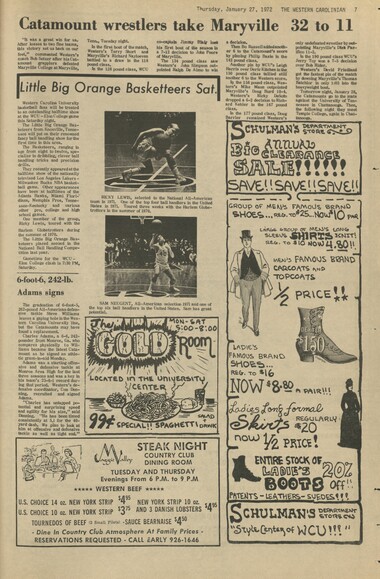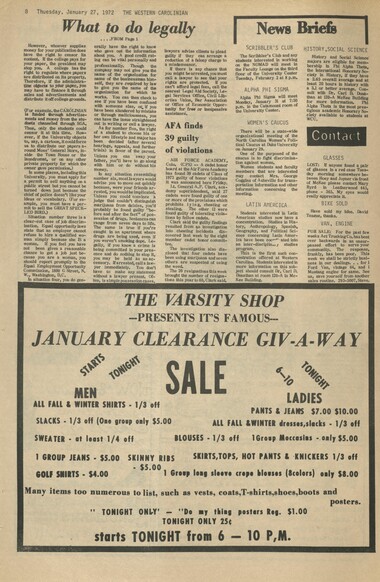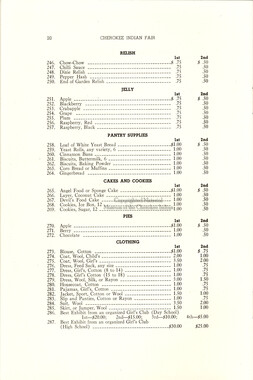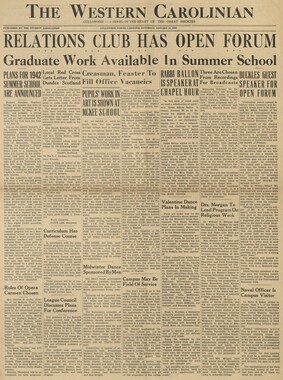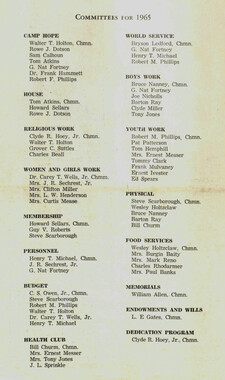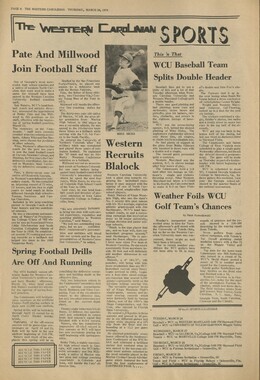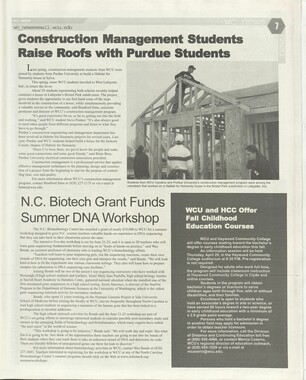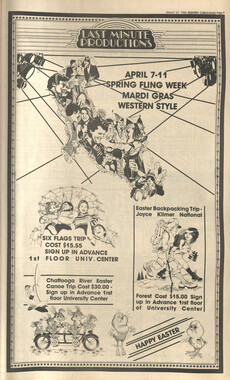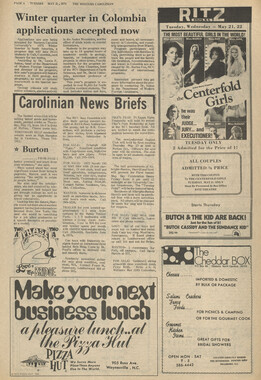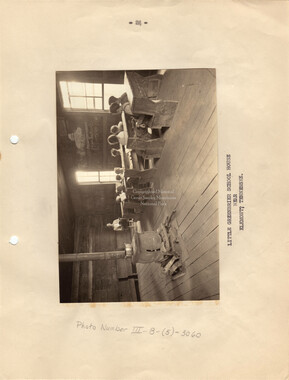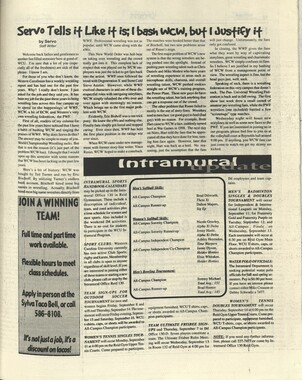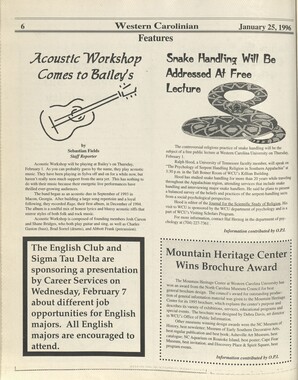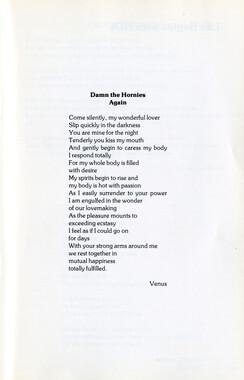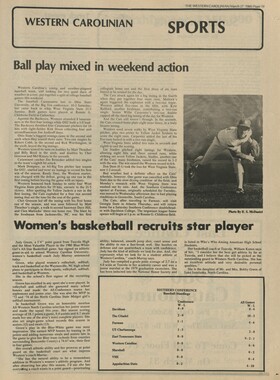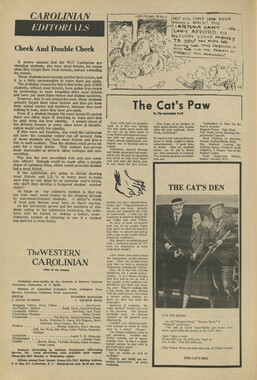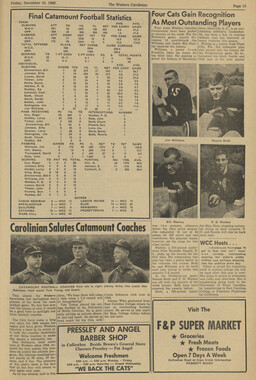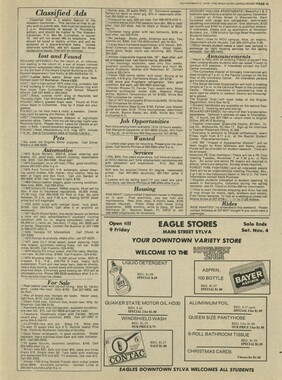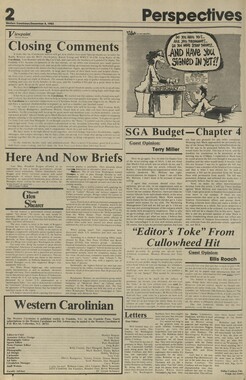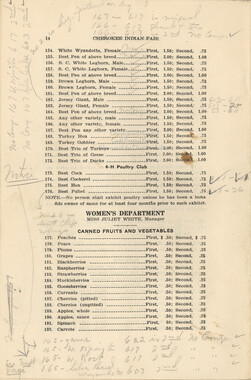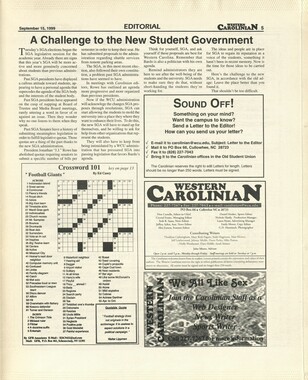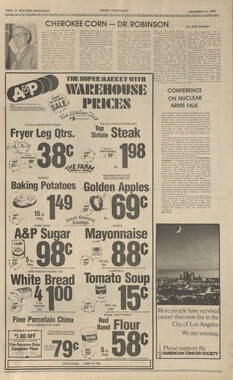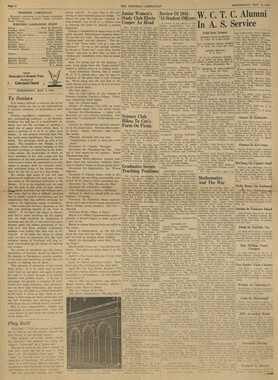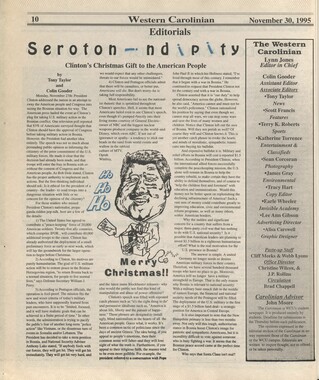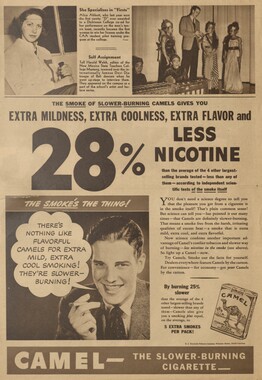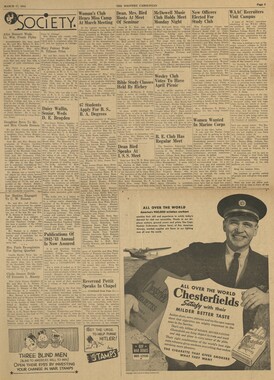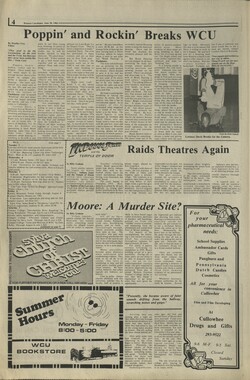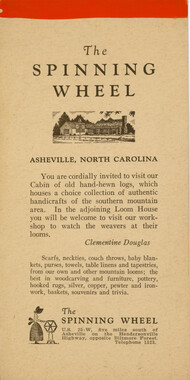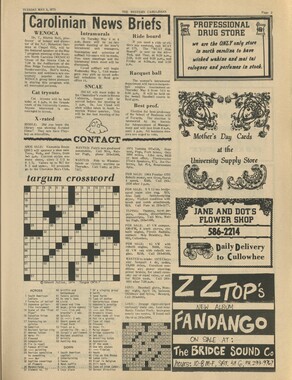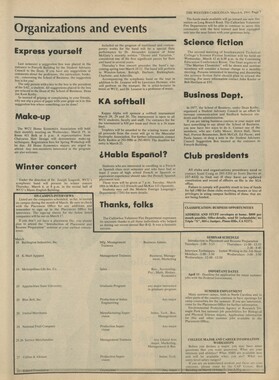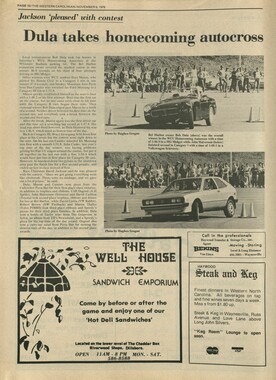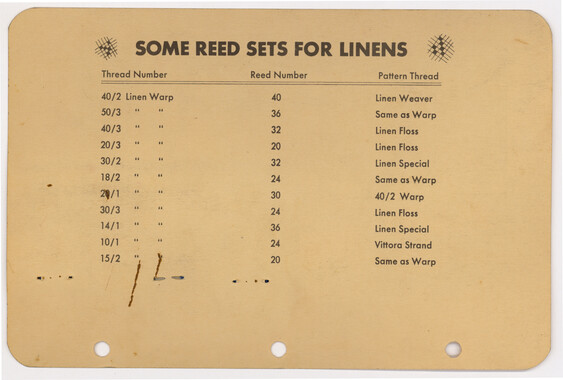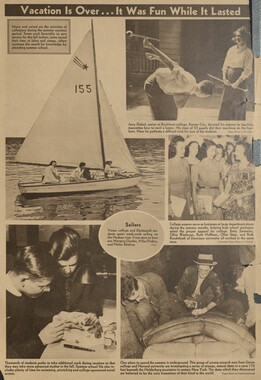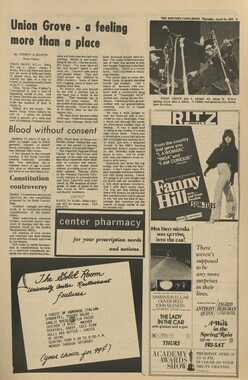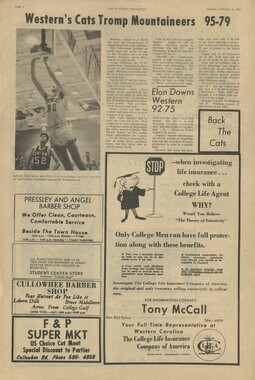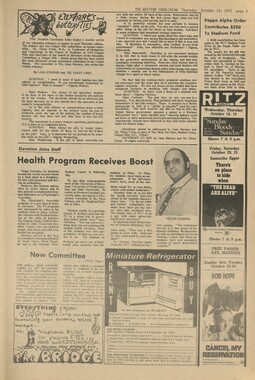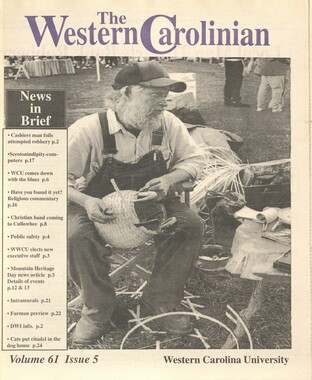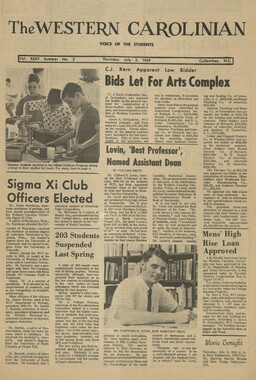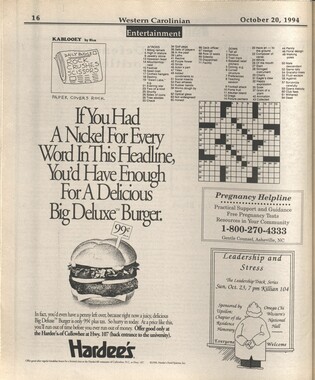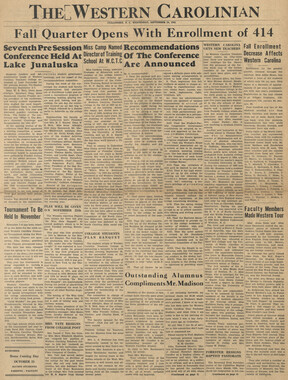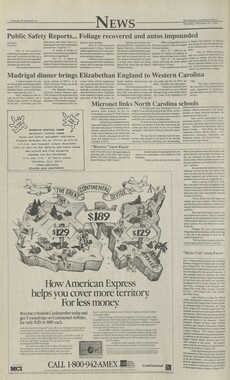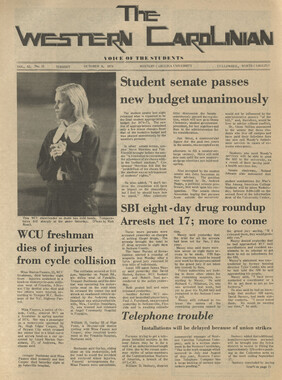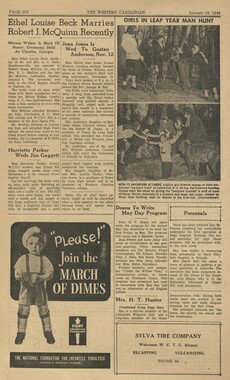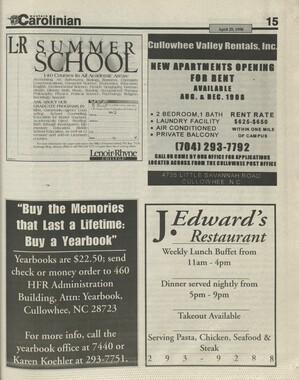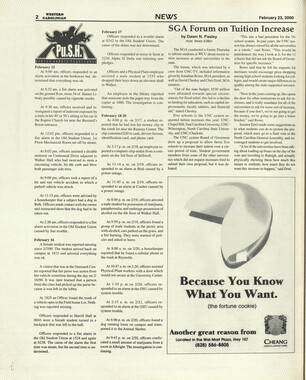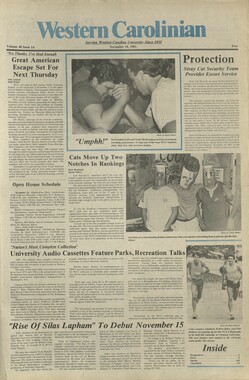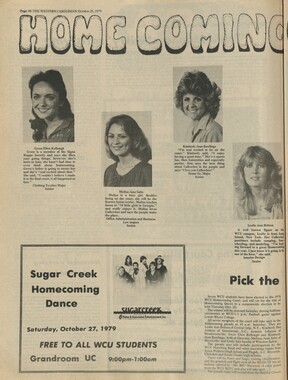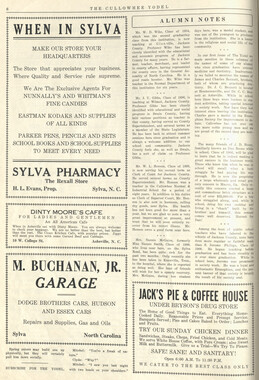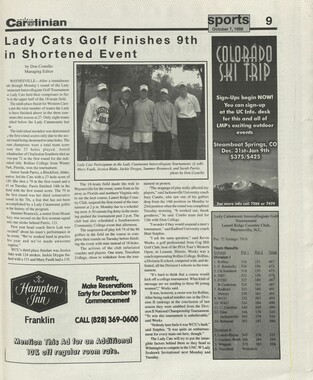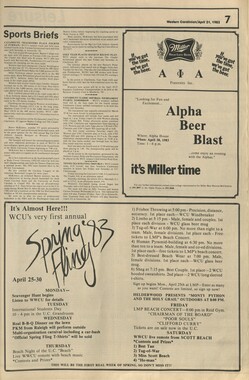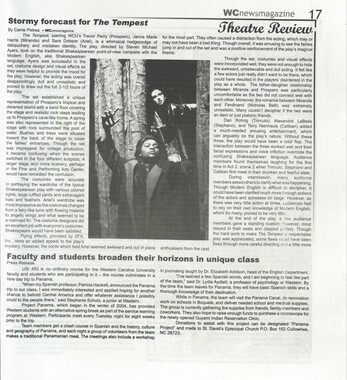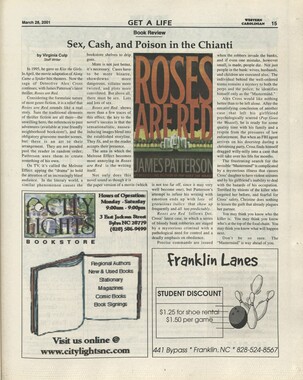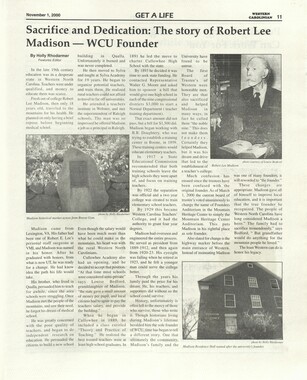Western Carolina University (20)
View all
- Canton Champion Fibre Company (2308)
- Cherokee Traditions (291)
- Civil War in Southern Appalachia (165)
- Craft Revival (1942)
- Great Smoky Mountains - A Park for America (2857)
- Highlights from Western Carolina University (430)
- Horace Kephart (941)
- Journeys Through Jackson (159)
- LGBTQIA+ Archive of Jackson County (85)
- Oral Histories of Western North Carolina (314)
- Picturing Appalachia (6772)
- Stories of Mountain Folk (413)
- Travel Western North Carolina (160)
- Western Carolina University Fine Art Museum Vitreograph Collection (129)
- Western Carolina University Herbarium (92)
- Western Carolina University: Making Memories (708)
- Western Carolina University Publications (2353)
- Western Carolina University Restricted Electronic Theses and Dissertations (146)
- Western North Carolina Regional Maps (71)
- World War II in Southern Appalachia (131)
University of North Carolina Asheville (6)
View all
- Allanstand Cottage Industries (62)
- Appalachian National Park Association (53)
- Bennett, Kelly, 1890-1974 (1388)
- Berry, Walter (76)
- Brasstown Carvers (40)
- Carver, George Washington, 1864?-1943 (26)
- Cathey, Joseph, 1803-1874 (1)
- Champion Fibre Company (233)
- Champion Paper and Fibre Company (297)
- Cherokee Indian Fair Association (16)
- Cherokee Language Program (22)
- Crowe, Amanda (40)
- Edmonston, Thomas Benton, 1842-1907 (7)
- Ensley, A. L. (Abraham Lincoln), 1865-1948 (275)
- Fromer, Irving Rhodes, 1913-1994 (70)
- George Butz (BFS 1907) (46)
- Goodrich, Frances Louisa (120)
- Grant, George Alexander, 1891-1964 (96)
- Heard, Marian Gladys (60)
- Kephart, Calvin, 1883-1969 (15)
- Kephart, Horace, 1862-1931 (313)
- Kephart, Laura, 1862-1954 (39)
- Laney, Gideon Thomas, 1889-1976 (439)
- Masa, George, 1881-1933 (61)
- McElhinney, William Julian, 1896-1953 (44)
- Niggli, Josephina, 1910-1983 (10)
- North Carolina Park Commission (105)
- Osborne, Kezia Stradley (9)
- Owens, Samuel Robert, 1918-1995 (11)
- Penland Weavers and Potters (36)
- Roberts, Vivienne (15)
- Roth, Albert, 1890-1974 (142)
- Schenck, Carl Alwin, 1868-1955 (1)
- Sherrill's Photography Studio (2565)
- Southern Highland Handicraft Guild (127)
- Southern Highlanders, Inc. (71)
- Stalcup, Jesse Bryson (46)
- Stearns, I. K. (213)
- Thompson, James Edward, 1880-1976 (226)
- United States. Indian Arts and Crafts Board (130)
- USFS (683)
- Vance, Zebulon Baird, 1830-1894 (1)
- Weaver, Zebulon, 1872-1948 (58)
- Western Carolina College (230)
- Western Carolina Teachers College (282)
- Western Carolina University (1840)
- Western Carolina University. Mountain Heritage Center (18)
- Whitman, Walt, 1819-1892 (10)
- Wilburn, Hiram Coleman, 1880-1967 (73)
- Williams, Isadora (3)
- Cain, Doreyl Ammons (0)
- Crittenden, Lorraine (0)
- Rhodes, Judy (0)
- Smith, Edward Clark (0)
- Appalachian Region, Southern (2569)
- Asheville (N.C.) (1923)
- Avery County (N.C.) (26)
- Blount County (Tenn.) (169)
- Buncombe County (N.C.) (1672)
- Cherokee County (N.C.) (283)
- Clay County (N.C.) (555)
- Graham County (N.C.) (233)
- Great Smoky Mountains National Park (N.C. and Tenn.) (519)
- Haywood County (N.C.) (3567)
- Henderson County (N.C.) (70)
- Jackson County (N.C.) (4745)
- Knox County (Tenn.) (31)
- Knoxville (Tenn.) (12)
- Lake Santeetlah (N.C.) (10)
- Macon County (N.C.) (420)
- Madison County (N.C.) (215)
- McDowell County (N.C.) (39)
- Mitchell County (N.C.) (132)
- Polk County (N.C.) (35)
- Qualla Boundary (981)
- Rutherford County (N.C.) (76)
- Swain County (N.C.) (2117)
- Transylvania County (N.C.) (270)
- Watauga County (N.C.) (12)
- Waynesville (N.C.) (84)
- Yancey County (N.C.) (72)
- Aerial Photographs (3)
- Aerial Views (60)
- Albums (books) (4)
- Articles (1)
- Artifacts (object Genre) (228)
- Bibliographies (1)
- Biography (general Genre) (2)
- Cards (information Artifacts) (38)
- Clippings (information Artifacts) (191)
- Copybooks (instructional Materials) (3)
- Crafts (art Genres) (622)
- Depictions (visual Works) (21)
- Design Drawings (1)
- Drawings (visual Works) (185)
- Envelopes (73)
- Exhibitions (events) (1)
- Facsimiles (reproductions) (1)
- Fiction (general Genre) (4)
- Financial Records (12)
- Fliers (printed Matter) (67)
- Glass Plate Negatives (381)
- Guidebooks (2)
- Internegatives (10)
- Interviews (815)
- Land Surveys (102)
- Letters (correspondence) (1013)
- Manuscripts (documents) (618)
- Maps (documents) (177)
- Memorandums (25)
- Minutes (administrative Records) (59)
- Negatives (photographs) (5926)
- Newsletters (1290)
- Newspapers (2)
- Notebooks (8)
- Occupation Currency (1)
- Paintings (visual Works) (1)
- Pen And Ink Drawings (1)
- Periodicals (193)
- Personal Narratives (10)
- Photographs (12976)
- Plans (maps) (1)
- Poetry (5)
- Portraits (4535)
- Postcards (329)
- Programs (documents) (151)
- Publications (documents) (2305)
- Questionnaires (65)
- Sayings (literary Genre) (1)
- Scrapbooks (282)
- Sheet Music (2)
- Slides (photographs) (402)
- Songs (musical Compositions) (2)
- Sound Recordings (796)
- Specimens (92)
- Speeches (documents) (15)
- Tintypes (photographs) (8)
- Transcripts (322)
- Video Recordings (physical Artifacts) (23)
- Vitreographs (129)
- Text Messages (0)
- A.L. Ensley Collection (275)
- Appalachian Industrial School Records (7)
- Appalachian National Park Association Records (336)
- Axley-Meroney Collection (2)
- Bayard Wootten Photograph Collection (20)
- Bethel Rural Community Organization Collection (7)
- Blumer Collection (5)
- C.W. Slagle Collection (20)
- Canton Area Historical Museum (2110)
- Carlos C. Campbell Collection (373)
- Cataloochee History Project (64)
- Cherokee Studies Collection (4)
- Daisy Dame Photograph Album (5)
- Daniel Boone VI Collection (1)
- Doris Ulmann Photograph Collection (112)
- Elizabeth H. Lasley Collection (1)
- Elizabeth Woolworth Szold Fleharty Collection (4)
- Frank Fry Collection (95)
- George Masa Collection (173)
- Gideon Laney Collection (452)
- Hazel Scarborough Collection (2)
- Hiram C. Wilburn Papers (28)
- Historic Photographs Collection (236)
- Horace Kephart Collection (861)
- Humbard Collection (33)
- Hunter and Weaver Families Collection (1)
- I. D. Blumenthal Collection (4)
- Isadora Williams Collection (4)
- Jesse Bryson Stalcup Collection (47)
- Jim Thompson Collection (224)
- John B. Battle Collection (7)
- John C. Campbell Folk School Records (80)
- John Parris Collection (6)
- Judaculla Rock project (2)
- Kelly Bennett Collection (1407)
- Love Family Papers (11)
- Major Wiley Parris Civil War Letters (3)
- Map Collection (12)
- McFee-Misemer Civil War Letters (34)
- Mountain Heritage Center Collection (4)
- Norburn - Robertson - Thomson Families Collection (44)
- Pauline Hood Collection (7)
- Pre-Guild Collection (2)
- Qualla Arts and Crafts Mutual Collection (12)
- R.A. Romanes Collection (681)
- Rosser H. Taylor Collection (1)
- Samuel Robert Owens Collection (94)
- Sara Madison Collection (144)
- Sherrill Studio Photo Collection (2558)
- Smoky Mountains Hiking Club Collection (616)
- Stories of Mountain Folk - Radio Programs (374)
- The Reporter, Western Carolina University (510)
- Venoy and Elizabeth Reed Collection (16)
- WCU Gender and Sexuality Oral History Project (32)
- WCU Mountain Heritage Center Oral Histories (25)
- WCU Oral History Collection - Mountain People, Mountain Lives (71)
- WCU Students Newspapers Collection (1784)
- Western North Carolina Tomorrow Black Oral History Project (69)
- William Williams Stringfield Collection (2)
- Zebulon Weaver Collection (109)
- African Americans (390)
- Appalachian Trail (35)
- Artisans (521)
- Cherokee art (84)
- Cherokee artists -- North Carolina (10)
- Cherokee language (21)
- Cherokee pottery (101)
- Cherokee women (208)
- Church buildings (170)
- Civilian Conservation Corps (U.S.) (110)
- College student newspapers and periodicals (1876)
- Dams (107)
- Dance (1023)
- Education (222)
- Floods (61)
- Folk music (1015)
- Forced removal, 1813-1903 (2)
- Forest conservation (220)
- Forests and forestry (1184)
- Gender nonconformity (4)
- Great Smoky Mountains National Park (N.C. and Tenn.) (181)
- Hunting (45)
- Landscape photography (25)
- Logging (118)
- Maps (83)
- Mines and mineral resources (8)
- North Carolina -- Maps (18)
- Paper industry (38)
- Postcards (255)
- Pottery (135)
- Railroad trains (71)
- Rural electrification -- North Carolina, Western (3)
- School integration -- Southern States (2)
- Segregation -- North Carolina, Western (5)
- Slavery (5)
- Sports (452)
- Storytelling (243)
- Waterfalls -- Great Smoky Mountains (N.C. and Tenn.) (66)
- Weaving -- Appalachian Region, Southern (280)
- Wood-carving -- Appalachian Region, Southern (328)
- World War, 1939-1945 (173)
Western Carolinian Volume 37 Number 29
Item
Item’s are ‘child’ level descriptions to ‘parent’ objects, (e.g. one page of a whole book).
-
-
..in the shadows of the Bine Ridge Thursday, January 27, 1972 THE WESTERN CAROLINIAN 3 Shine, moon, shine -part 1 By JAY S. GERTZ It's a moonlit night ona winding mountain road. AU is quiet except for toe orchestral chirpings of a myriad crickets. But off in the distance one can hear the faint squea lings of auto tires on pavement. The screeches get louder and then are accompanied by the roar of a high-powered engine. Suddenly piercing the dark from around a hairpin curve are a pair of bright headlingts and a '49 Ford Coupe blasts down the road. Quickly following are a second pair of headlights and a black sedan screams behind in hot pursuit If one or both of the cars were to crash and explode In flames or the pursuing car lose the chase, the above scene would typify one from the 1958 movie "Thunder Road." This movie portrayed the adventures of the "blockaders" or "runners." The job of these men was to take moonshine from still to distribution points. What this movie failed to do, though, was to show the operations involved before distribution. The North Carolina mountains are filled with stories from both sides of the law on both phases of the moon- shining business. But let me start from the beginning on this often romantic, often dangerous, always illegal business df moonshining. Moonshine is considered to be anynon-taxpaiddistUled spirits in the United States. Moonshine goes by many names. Among them are: ruckus juice, conversation fluid, corn, corn squeezins, white lightening, white, cove juice, thump whiskey, headache whiskey, blockade whiskey, bootleg, keckapoo juice, king corn, panther juice, tiger sweat, white mule, mountain dew, 'shine, popskull and busthead. The last two refer to inferior types, which produce superior hangovers. To make a complicated recipe short, here is how corn liquor is made. (For a very detailed article on still construction and moonshine production see the FaU & Winter issue of "Foxfire" Vol. II, #s 3 & 4.) The moonshiner takes sprouted corn meal and makes it into a mush with boUing water. This "sweet mash" is left to set for a few 'Love Story9 jerks tears, pulls $$$ NEW YORK, N.Y. (CPS) "Love Story," that classic tear jerker written by Harvard Medieval English Professor Eric Segal has earned $50 million for its distributor since it was released in December 1970, enough to make it the third highest money - raker of aU time* j- i j The figures were disclosed last week in VARIETY, the show business weekly, in its annual compilation of such grisly statistics. "Gone With the Wind" (how many times have you seen it?) tops the list of money makers with $74.2 mUlion in revenue whUe "Sound of Music" runs rich second with $72 miUion in box office receipts. Other 1971 films and their earnings, according to VARIETY, were: "Summer of '42," $14 mUlion; "Ryan's Daughter," $13.4 million; "The Owl and the Pussycat,"$U,5million and "The Aristocats," $10.1 million. days. Then it is stirred, rye added for flavor and allowed to set for about a week. This is where fermentation occurs. The moonshiners, having no saccharometers or thermometers, rely solely on their innate senses and experience to keep the barrels fermenting at the same rate and temperature. After a week or ten days, the sugar has turned into carbolic acid and alcohol. This "sour mash" is called "beer." The "beer" is placed in the still. The still is an enclosed tank, and when It is fired up, the vaporized "beer" escapes through a coilcaUeda "worm." In the worm the beer condenses and drips out into a container. The moonshiner keeps recycling these drippings untU it has reached the potency he wants. He realizes the correct proof by placing the liquid in a small vial and shaking it. If a small bead forms and stays, then the 'shine is done. He runs it through a crude charcoal filter and it is ready to drink. (Poisonous shine comes from using a radiator as a "worm" or adding potash for a fake "bead." Death or blindness is caused by this poison. This liquor is not aged, for the moonshiner cannot afford to lose his product to the reve- nooers. Horace Kephart retells a story he heard from Quill Rose: "A ...dude from Knox- vUle told me all good red-liquor was aged, and that if I'd age my blockade it would bring a fancy price. Well, sir, I tried it; I kept some for three months—and by godlings, IT AIN'T SO." Moonshining used to be a necessary and integral part of mountain living. One reason was a favorable tradingcom- modlty. It was easier to bring corn liquor to market, than bushels of corn. One bushel of corn makes two gaUons of 'shine, and in value the liquor AS CASUALLY AS COLLEGE, this student takes a quick study session in the hall of the new art building. is worth twice as much. Now mountain highways have ended the transportalon difficulty. A- nother reason for moonshining was that corn liquor was called for in many hUl remedies. Modern medicine has made that potent ingredient obsolete. (Another simple reason was that it was a damn profitable way to make money right in one's own back yard, but not in the pr.e- Prohlbltion era.) The main reason moonshining has remained a unique illegality of the Appalachians lies in history. The Irish used to make home brew from potatoes. The Scottish made it from rye. It was a legal home affair, just like making pie. But the government imposed an excise tax with a "no-knock search" clause in it that the Scots and Irish grew to loathe. They brought this loathing of taxes and the ability to make liquor with them when they settled in the Appalachian mountains. In 1791 the first of many excise taxes was imposed in this country. This goaded the hill people into rebellion, and it took 15,' 10 militia to quell it. Tax on liquor was levied and repealed many times. But It was In it* -nit ext^»at. EffR*% 1864 that the tax went to $1.50 a gallon, then to $2,00/gallon. They were not wtUing to p*y such a high tax on a necessary trading commodity. It was at this time that the blood feuds between moonshiners andreve- nooers began. These reve- nooers were almost outlaw types who made their salary by the numbers of arrests and stiUs destroyed. The mountain folk subjected to a destruction of their livelihood and arrest had only one alternative: guerrilla warfare. This "eye for an eye, tooth for a tooth" logic was far easier for them to understand than a two dollar excise tax on something they produced for 20 cents a gallon! . NEXT WEEK: StUl more moonshine! ALSO COMING: This summer a three week course called Southern Appalachian History and Folklore will be taught jointly by Dr. MacMaster and Mr. Newt Smith. The five hour credit can be taken either for history or English credit.) SOURCES: OUR SOUTHERN HIGHLANDERS by Horace Kephart and YANKEE REVENOOER by John Kearlns. Drop-add students need new schedules Each student who failed to obtain a computer-printed Winter Quarter 1972 class schedule after dropping, adding or submitting initial registration forms since January 3 should secure the printed schedule from the Registrar's Office as soon as possible, according to Mrs. Harriet Parker .registrar^ Over 1,000 students have not claimed revised class schedules and some schedules may contain errors as a result of Improper drop/add procedure, Mrs, Parker said. She stated that It is the responsibility of each student to ascertain' that his schedule is correctly printed or to file necessary changes with the Registrar's Office for processing, Final grade cards are generated only for those sections of courses which are printed on the class schedule and the accuracy of term grade reports Is dependent upon correct scheduling, she said. Dorms to hold victory dance The Albright-Benton and Leatherwood Residence HaU Government Associations present "Breddan-Whatter" in a victory dance celebration Saturday Jan. 29th , from 10:00 p.m. tUl 1:00 a.m. in the Albright-Benton Lounge, PLUS, an OPEN HOUSE from 9:00 p.m. tUl 1:00 a.m. "Breddan- Whatter" is from King's Mountain, North Carolina. Refreshments wUl be sold in the lobby from 10:00 tiU 1:00. There will be no admission charge. Like, CHICK., LT Baby? FAR MftMJ loon'T !f)tartttros 3FTS ♦♦CARDS" <? . WWW 1
Object
Object’s are ‘parent’ level descriptions to ‘children’ items, (e.g. a book with pages).
-
The Western Carolinian is Western Carolina University’s student-run newspaper. The paper was published as the Cullowhee Yodel from 1924 to 1931 before changing its name to The Western Carolinian in 1933.
-
